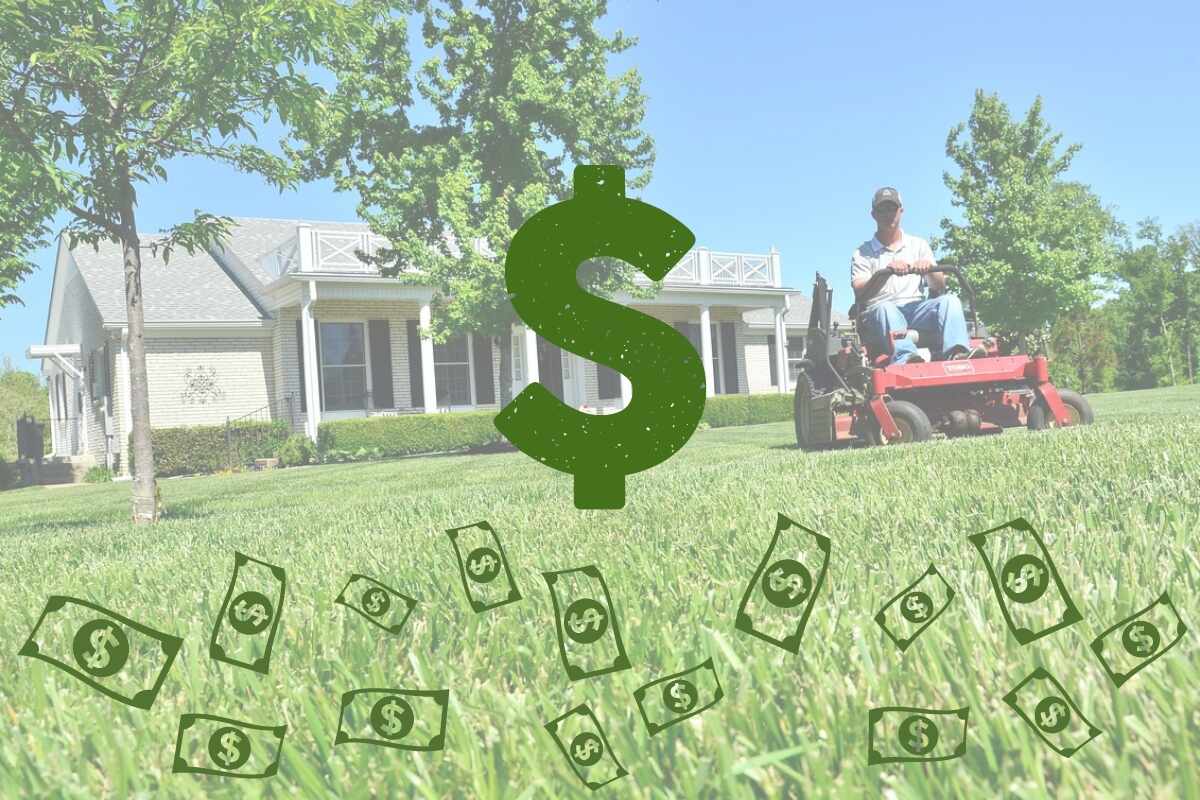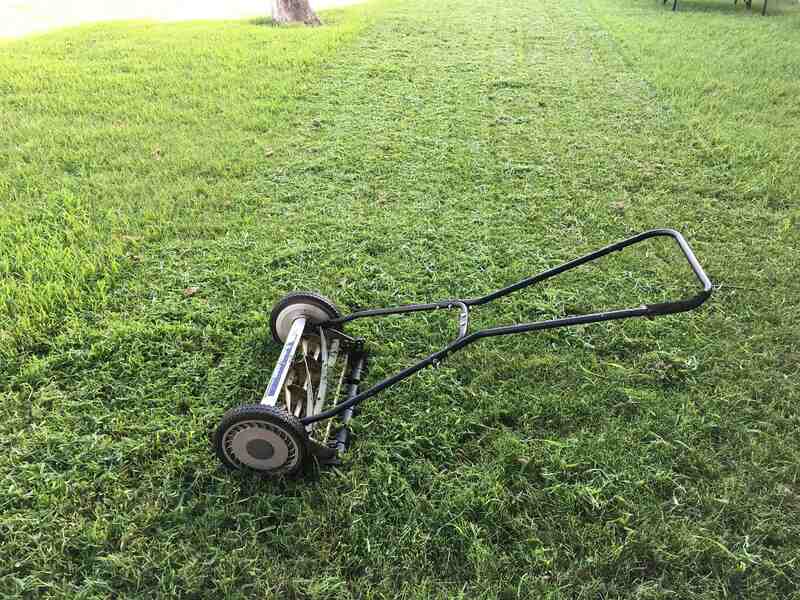
Understanding what you can and cannot deduct for tax purposes is incredibly important as a landlord. When lawn care expenses are incurred for maintaining your rental property, they are often eligible for use as a tax deduction. These lawn care tax deductions significantly reduce your taxable income as a rental property owner, ultimately influencing the overall profitability of the investment.
We’ll shed light on the deductible aspects of lawn care for rental properties and talk a bit about tax education, in general, to help maximize your income tax return.
Lawn Care as a Business Expense

When it comes to rental properties, every cent you put into the property is considered business expenses and may be used in your favor when it comes to tax time. The tricky part is determining exactly how these rental property expenses impact your business income and how you can claim it as a write-off on your taxes.
As a general rule, lawn care for your rental property is considered maintenance or an operating expense and will generally be considered a deductible expense. This includes professional services such as lawn mowing, trimming, weeding, lawn aeration, and pest control. Suppose you do the lawn care and maintenance yourself. In that case, you can claim all expenses incurred: a new mower or trimmer, grass seed, fertilizer, gas for the mower, new blades or blade sharpening, batteries for electric trimmers or leaf blowers, and equipment maintenance.
The critical factor is whether the work maintains the property’s value or is meant to improve it. If the lawn care is upkeep and intended to keep that value, it’s considered a necessary expense and can be used as a tax deduction. If it’s meant to improve the value of the rental property, it’s regarded as a capital gain, and capital improvements must be treated differently.
To explain a little bit more, allowing the lawn to go unmowed could damage the value of your property. Depending on your proximity to the investment property and your specific situation, you may need help with lawn care. Therefore, because the expense is necessary for operating the business as a landlord, you can deduct it from your taxes.
Pro Tip: It’s important to remember that tax laws vary, so consult an accountant or tax professional for advice. Keep detailed records and receipts for all lawn care expenses related to your rental property to support your tax deductions on your IRS publication Schedule E tax form (Form 1040).
Why Are Tax Deductions Important?
Whether you’re managing rental real estate or running a business in general, the hope is to have a successful venture and generate income. The drawback, though, is that as a real estate investor or a business owner, the government will want its share of your income come tax time. This is where tax deductions come in handy.
Deductions are essential because they can help rental property owners reduce their tax liability, ultimately lowering the rental income subject to taxation. By strategically using eligible deductions, property owners can optimize their financial position and improve the overall profitability of their rental property investment.
Common Rental Property Tax Deductions

To help give you a better understanding, here are deductible expenses you can claim for your rental property(ies).
- Property Taxes: You can deduct annual property taxes paid on the rental property.
- Mortgage Interest: Interest paid to the lender on the rental property’s mortgage is generally deductible.
- Operating Expenses: This includes property management, maintenance costs, repairs, and utilities. Obviously, lawn care is considered a maintenance expense for operating the rental property.
- Insurance Premiums: The cost of insurance for the rental property, such as fire, flood, or landlord liability insurance, is deductible.
- Depreciation: You can deduct the cost of the property over time, not in a single tax year. The IRS allows for the depreciation of the property value, excluding the land.
- Professional Services: Fees paid to professionals, such as attorneys or accountants, for services related to the rental property are usually deductible. Tax preparation fees paid to a CPA are included in this.
- Travel Expenses: If you travel to the rental property for business purposes, such as to make repairs or manage the property, you may be able to deduct travel expenses, including mileage, at the standard mileage rate.
- Advertising Costs: The expenses associated with advertising the rental property, such as listing fees, are deductible.
- Home Office Expenses: If you use part of your home exclusively for managing your rental property, you may be able to deduct home office expenses.
- Interest on Loans: If you took out a loan for improvements or repairs on the rental property, the interest on that loan may be deductible.
Things that are Not Tax Deductions for Rental Properties
While many expenses related to rental properties are tax-deductible, certain costs typically cannot be claimed as deductions. Some common examples of expenses that are generally not tax-deductible for rental properties include:
- Personal Expenses: Costs that are purely personal and unrelated to the rental property are not deductible. For example, personal groceries, clothing, and personal insurance are not eligible.
- Value of Your Labor: If you perform maintenance or repairs on the property, your time and labor value are not considered a deductible expense.
- Homeowners Association (HOA) Fines: Fines or penalties a homeowners association imposes for violations are generally not tax-deductible.
- Commuting Expenses: Expenses related to commuting between your residence and the rental property are not deductible. Only travel expenses associated with managing the property or collecting rent may be eligible.
- Personal Use of the Property: If you use the property for personal purposes, such as a vacation home, the expenses associated with the personal use portion are not deductible.
FAQs About Lawn Care Tax Deductions for Rental Properties
Can You Deduct Landscaping Expenses on Your Home?
This answer isn’t as straightforward as the deductions for a rental property. For many people, you can’t deduct your personal property’s landscaping expenses from your personal taxes. However, you can claim part of your lawn care expenses on your business taxes if you have a home-based office.
The critical aspect is you can only deduct a percentage of what you’ve spent on landscaping, the same percentage as your home office size. For instance, if your home office amounts to 10% of the home’s square footage, you may be able to deduct 10% of the lawn care operating expenses.
Is Tree Removal Tax Deductible for a Rental Property?
Whether or not tree removal is deductible depends entirely on the reason(s) why you’re removing it. Removing the tree because it endangers the home is considered a safety reason and may be eligible as a tax-deductible expense. Failing to remove such a tree isn’t optional, as it can potentially damage or destroy your house.
If you’re removing a tree as part of a large landscaping project to improve the house’s value, you can’t deduct it from your taxes. In this case, tree removal is considered a capital gain, not an expense.
Is Installing a Sprinkler System Tax Deductible for Rental Properties?
The sprinkler installation cost for a rental property is generally considered a capital expense and is not deductible as an immediate expense in the year it is incurred. Instead, the cost is typically capitalized and recovered over time through depreciation.
Let the Professionals Help You With Your Rental Property
Now that you’re educated on how and why lawn care is tax deductible for rental properties, you may question doing the work in your free time. Knowing you can claim the work of a professional service may have you thinking about hiring someone.
If you’re in the market for a local lawn care professional, contact LawnStarter! We’ll put you in touch with your area’s best contractors, who will keep that yard in tip-top shape and your tenants proud to call the property home.
Main Photo Credit: Clayton800 / Pixabay, overlay created using Canva Pro